Welcome to Oxford Battery Modelling Symposium (OBMS), a unique event for the battery community. OBMS brings together mathematicians, chemists, physicists and engineers from academia and industry to discuss the latest modelling research and applications. Our philosophy is to invite a small number of outstanding speakers spanning a range of topics from atomistic to continuum modelling, controls and beyond, giving broad and inspiring presentations and open discussions. Our first event in 2019 was attended by 170 people with leading experts including John Newman speaking; our subsequent events were held online during lockdown periods but continued to be wildly popular. We are delighted to invite you back to join us for Oxford Battery Modelling Symposium 2023, which will return as an in-person meeting hosted at Pembroke College in Oxford. Details of our exciting programme of speakers is being updated below. The event will also include a poster session and a wonderful dinner at Pembroke College.
Senior researchers, early career researchers and PhD students, in academia, research institutes, and industry, in the UK and internationally
27th and 28th March 2023, Pembroke College, Oxford, England, OX1 1DW.
Please contact clementine.hadfield@oerc.ox.ac.uk for general queries about the conference, or events@eng.ox.ac.uk for registration related queries
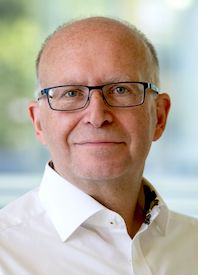
Jürgen Janek has a chair for Physical Chemistry at Justus Liebig University in Giessen (JLU). Germany, is director of the JLU Center for Materials Research and Scientific Director of the BELLA lab at KIT, Karlsruhe. He was visiting professor at Seoul National University (South Korea), Tohoku University (Sendai, Japan) and D´Aix-Marseille (France), holds a honorary doctorate by TU Delft (Netherlands), is member of the Leopoldina – German National Academy of Sciences and was recently awarded with the first Greve Prize by Leopoldina. He holds numerous patents, has published more than 450 peer-reviewed papers and got numerous awards. His research interests focus on the physical chemistry of inorganic solids, solid state ionics and reactivity, specifically on the properties of mixed ionic-electronic conductors, defect chemistry of ionic materials, kinetics of solid-state reactions and solid-solid interfaces. In recent years his research is focused strongly to the chemistry of battery materials, solid electrolytes and solid-state batteries and operando studies of batteries. He is scientific coordinator of the German Cluster of Competence for Solid State Batteries FESTBATT funded by BMBF (Federal Ministry for Education and Research) and member of the DFG Cluster of Excellence POLIS at Ulm/Karlsruhe.

Tejs Vegge is Professor and Head of Section for Autonomous Materials Discovery at the Technical University of Denmark, with a large international network and broad knowledge of materials physics/chemistry and energy materials in general. His section specializes in integrating atomic-scale computational modelling, machine learning and experimental techniques for accelerated autonomous design and discovery of novel materials for conversion and storage of sustainable energy, specifically next-generation battery materials and electrocatalysts. Among other things, he is the coordinator of the large-scale European battery project BIG-MAP and an elected member of the Danish Academy of Technical Sciences (ATV).
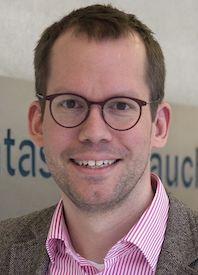
Professor Birger Horstmann is Group Leader at the German Aerospace Center (DLR) in the Helmholtz Institute Ulm and is Professor of Materials Simulation. He studied Physics and Mathematics at the University of Jena and the University of Cambridge. After completing his PhD on theoretical quantum physics at the Max-Planck-Institute for Quantum Optics near Munich, Dr. Horstmann moved to the field of continuum modelling of batteries. His current research focusses on mesoscale models for electrochemical interfaces and interphases. This includes the theory of electrochemical double layers, nucleation and growth of reaction products, and the formation of interphases, e.g. SEI. Furthermore, he evaluates these mesoscale theories in macroscopic models of lithium and beyond lithium batteries.
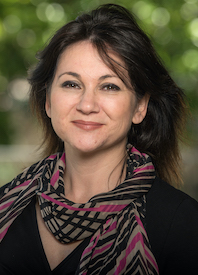
Dr. Simona Onori is an Assistant Professor in Energy Science and Engineering at Stanford University where she also holds a courtesy appointment in Electrical Engineering. Upon joining the Stanford faculty, she funded and currently directs the Stanford Energy Control lab where she leads a team of graduate/undergraduate students, postdocs and international visiting scholars conducting research on experimental characterization, modeling, control and optimization of energy storage and conversation systems for sustainable transportation and power grid applications. She is Fellow of SAE (2022), and the recipient of the 2020 U.S. DoE Clean Energy Education & Empowerment (C3E) Award, Category Research, the 2019 Board of Trustees Award for Excellence, Clemson University, the 2018 Global Innovation Contest Award by LG Chem, the 2018 SAE Ralph R. Teetor Educational Award and the 2017 NSF CAREER award. She is Editor in Chief of the SAE International Journal of Electrified Vehicles, a distinguished lecturer for the IEEE Vehicular Technology Society (2020-2022) and IEEE Senior Member (2015). She is serving as a technical advisory of a number of battery start-ups and she consults for major companies on the topic of BMS. She earned a Laurea Degree in Electrical and Computer Engineering from University of Rome “Tor Vergata”, an M.S. in Electrical Engineering from University of New Mexico, and a PhD. in Control Engineering from University of Rome “Tor Vergata”. Prior to joining Stanford University, she was a faculty at Clemson University International Center of Automotive Research and before that research scientist at the Ohio State University.
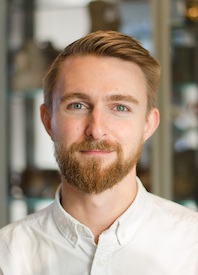
Sam Cooper is an Associate Professor in the Dyson School of Design Engineering at Imperial College London, where he leads the TLDR group (Tools for Learning, Design, and Research), who largely focus on the development of methods for characterising, simulating, and optimising energy systems. Over the past five years, his group has released a variety open-source software to enable the research community to rapidly analyse experimental data to extract materials’ properties. Their recent papers demonstrate how machine learning methods can be used for dimensionality expansion (2D to 3D image generation) and data fusion (combining high-res. 2D data with low-res. 3D data). tldr-group. The Tools for Learning, Design and Research (tldr) group is a multidisciplinary team based in the Dyson school of Design engineering at Imperial College London. With activities spanning online education, generative design and simulation-based characterisation, this team is brought together by a common theme of tool making.

Dr. Kara Fong is a Schmidt Science Fellow and Trinity College Junior Research Fellow at the University of Cambridge, working with Prof. Angelos Michaelides and Prof. Clare Grey. In early 2025, she will start as an Assistant Professor of Chemical Engineering at the California Institute of Technology. Kara earned her PhD in 2022 from the University of California, Berkeley, where she was a National Science Foundation Graduate Research Fellow. She additionally received an MPhil in Materials Science and Metallurgy from the University of Cambridge and a BS in Chemical Engineering from Stanford University. Kara’s research uses molecular simulations and statistical mechanics to understand transport and thermodynamics in electrochemical systems. Her work has focused in particular on linking atomic-level ion motion and macroscopic transport phenomena in Li-ion battery electrolytes.
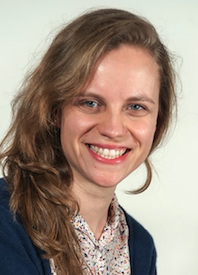
Jelena Popovic-Neuber is currently Associate Professor in Battery Technology at University of Stavanger, Norway. She studied colloid chemistry at Max Planck Institute for Colloids and Interfaces/University of Potsdam, Germany and chemical engineering at the University of Belgrade, Serbia. After graduation, she spent 11 years as a staff scientist at Max Planck Institute for Solid State Research, Stuttgart, Germany. Her scientific interests are focused on fundamental physicochemical investigation of ion conduction mechanisms in materials for electrochemical energy storage, mostly battery electrolytes, electrodes and interphases
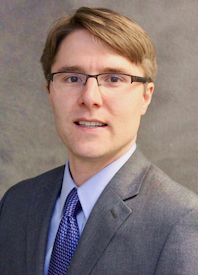
Dr. Paul Albertus holds a B.S.E. in Chemical Engineering from the University of Michigan, and a Ph.D. in Chemical and Biomolecular Engineering from the University of California, Berkeley, where he studied Electrochemical Engineering. Dr. Albertus then spent five years at the Bosch Research and Technology Center in Palo Alto, CA, as a Senior Research Engineer, where he continued research on electrochemical systems, including Li/Oxygen and flow batteries. In 2014 Dr. Albertus joined the Advanced Research Projects Agency – Energy, where he led the development of two programs (IONICS and DAYS) focused on energy storage for both portable and stationary applications, and managed electrochemical projects across a range of ARPA-E programs . During his time at ARPA-E Dr. Albertus led the initiation of $96M in new projects and additional funding for existing projects. Dr. Albertus transitioned to academic roles at the University of Maryland, College Park, in 2019, and currently serves as Associate Director of the Maryland Energy Innovation Institute and Assistant Professor of Chemical and Biomolecular Engineering. His research group focuses on mathematical modeling, experimental characterization, and innovations for electrochemical technologies, including lithium metal and solid state batteries.
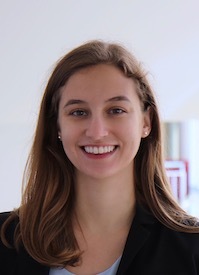
Dr Rebecca Ciez is an Assistant Professor in Mechanical Engineering and Environmental and Ecological Engineering at Purdue University. She received her Ph.D. in Engineering and Public Policy from Carnegie Mellon and has a B.S. in Mechanical Engineering from Columbia University. She also spent time as a postdoc at Princeton’s Andlinger Center for Energy and the Environment and Columbia’s Electrochemical Energy Center. Her research focuses on the intersection of performance, technology adoption, and public policy for energy technologies.
The Oxford Battery Modelling Symposium will be held in the heart of Oxford at Pembroke College. Presentations will be held in the state of the art Pichette Auditorium, with dinner being hosted in the historic setting of Pembroke's beautiful dining hall.
Map and directions to Pembroke College
Pembroke College is situated in Oxford city centre and is a 15 minute walk from Oxford's train station where regular trains run to London Marylebone station or Paddington station, both of which are just a few stops by London Underground to St. Pancras station, where Eurostar train connections are available to France, Belgium and beyond. If you are driving to Oxford, parking in the centre is very constrained and we recommend instead parking at one of the local Park and Ride facilities from which regular buses into the centre of town are available. The easiest airport for access to Oxford is London Heathrow and there is a regular bus service that runs between Heathrow and Oxford (terminal 5 is particularly convenient for this).
Unfortunately rooms in Pembroke are now fully booked. However, there are a number of hotels in close proximity to the venue, including but not limited to: Malmaison, Museum Hotel Oxford, Mercure Oxford Eastgate Hotel, Tower House, The Buttery. You can also book rooms in other Oxford Colleges via Conference Oxford - Christchurch, Lincoln, St Peter's, Merton, Corpus Christi, Oriel, Brasenose and Exeter College are all within close proximity of OBMS23.
REGISTRATION
Registration is now open, please use this link or the SIGN ME UP! button at the top of the page to register. Registration includes: the two-day workshop, keynote lecture, welcome drinks reception and poster session, lunch and refreshement on both days, banquet evening dinner, participant pack, certificate of attendance.
Early Bird Rate: Standard registration £300; Student registration £200
After 8th February: Standard registration £350; Student registration £250
POSTER ABSTRACTS
Anyone wishing to submit a poster abstract for consideration by the OBMS committee should fill out the attached template Poster Abstract Template and send it in word docx format (NOT pdf) to david.howey@eng.ox.ac.uk no later than 5pm GMT on Friday 17th February 2023. We will then make decisions quickly and inform people about whether their poster is accepted by the end of February (earlier if possible). Please do not deviate from or change the template, if you do we will send your abstract back to you. You may include figures as long as the total length is still one page.
Any attendee is welcome to upload a poster; there will not be an abstract submission stage. However, please make sure file sizes are reasonable, nothing confidential is shared, and that posters are within scope (i.e. about battery modelling). This can be done any time from now up to and including during the event next week in the posters channel '#7-posters'. During the Symposium we will have a dedicated session to discuss posters and will select a couple for a short 'live' presentation from the author with Q&A.
Registration for the symposium is now open, to include refreshments and lunch on both days, and the symposium dinner held at Pembroke College. Prices are unchanged from last year, with standard registration costing £350.
Register by following this link or pressing the button at the top of this website. Note that the conference fee does NOT include accommodation costs or travel costs, which must be booked independently. Information on suitable local accommodation and travel advice is available below.
If you would like a quote to start the process, please contact us at events@eng.ox.ac.uk.
The Symposium Dinner will take place on the evening of 27th March 2023, and includes a 3 course meal and wine in Pembroke College's old dining hall.
All speakers for the symposium will be invite only. We will also display a number of posters during the conference. If you would like to be considered for a poster space, please send a one page abstract using the Poster Abstract Template for consideration to david.howey@eng.ox.ac.uk no later than 1st Feb 2020. Only submissions from persons registered for the conference will be considered.
David Howey
Charles Monroe
Colin Please
Jon Chapman
Please read the Cvent Privacy Notice before registering.
We value the participation of everyone and want all participants to have an enjoyable and fulfilling experience. Accordingly, all participants are expected to show respect and courtesy to other participants throughout the workshop and through all communication channels, including but not limited to OBMS Slack channel and Zoom. To make clear what is expected, all participants, speakers, exhibitors, organisers and volunteers at OBMS are required to conform to the following Code of Conduct. Organisers will enforce this code throughout the event.
SUMMARY
The Oxford Battery Modelling Symposium is dedicated to providing a harassment-free workshop experience for everyone. We do not tolerate harassment of workshop participants in any form.
* All communication should be appropriate for a professional audience including people of many different backgrounds.
* Be kind to others.
* Do not insult or put down other attendees.
* Behave professionally. Remember that harassment and exclusionary jokes are not appropriate at the Oxford Battery Modelling Symposium. Do not send any unprofessional messages to other participants, including but not limited to private messages in Slack and Zoom.
* Participants violating these rules may be asked to leave the symposium at the sole discretion of the organisers.
* Thank you for helping make this a welcoming, friendly event for all.
CLARIFICATIONS
* Harassment includes offensive communication related to gender, sexual orientation, disability, physical appearance, body size, race, religion, sexual images in public spaces, deliberate intimidation, stalking, following, harassing photography or recording, sustained disruption of talks or other events, inappropriate physical contact, and unwelcome sexual attention.
* Participants asked to stop any harassing behaviour are expected to comply immediately.
* Be careful in the words that you choose. Remember that words can be offensive to those around you. Offensive jokes are not acceptable at the Oxford Battery Modelling Symposium. Excessive swearing is not appropriate at OBMS.
* If a participant engages in behaviour that violates this code of conduct, the organisers may take any action they deem appropriate, including warning the offender or expulsion from the symposium.
* Filming/recording of the Oxford Battery Modelling Symposium and sharing or any recordings is strictly prohibited.
CONTACT INFORMATION
If you are being harassed, notice that someone else is being harassed, or have any other concerns, please contact a member of the Code of Conduct Committee via: events@eng.ox.ac.uk
CANCELLATION OF EVENT - IF WE CANCEL
On occasion, unforseen circumstanes may require us to cancel an event. In such circumstances we will give as much notice as possible and endeavour to oganise another event date or refund any fees paid, but no compensation will be paid for any additional costs you may have incurred.
REEFUNDS - IF YOU CANCEL
The following refund policy is applicable for OBMS:
Where notice of cancellation is received, we will refund a proportation of the conference fee. The non-refundable portion of the fee is £100 per person and cannot be reimbursed. Note: the periods reference the day on which we receive your written/emailed notification of cancellation.
NOTICE PERIOD % OF REFUND
More than 14 workings days before the start date - 100% of the refundable portion.
Less than 14 working days before the start date - 0% of the refundable portion.
The refund policy above applies to the registration fee.